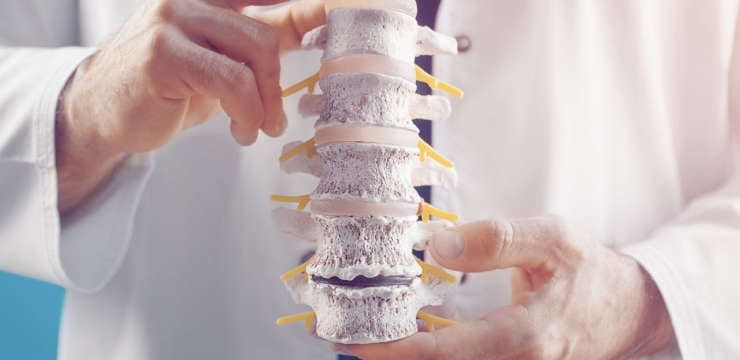Introduction The body is a fine-tuned machine that is on the move constantly. Whether it is everyday movements, lifting objects, going to work, or doing…

Chiropractic is a form of alternative treatment which focuses on the diagnosis and treatment of a variety of musculoskeletal injuries and conditions, especially those associated with the spine. Dr. Alex Jimenez discusses how the use of spinal adjustments and manual manipulations on a regular basis can greatly help both improve overall health and eliminate many symptoms that could be causing discomfort to the individual. Chiropractors believe among the main reasons for pain and disease is the misalignment of the vertebrae in the spinal column (this is known as a chiropractic subluxation). Through the usage of manual detection (or palpation), carefully applied pressure, massage, and manual manipulation of the vertebrae and joints (called adjustments), chiropractors are able to alleviate pressure and irritation on the nerves, restore joint mobility, and help return the body’s homeostasis. With regular adjustments, nutritional support from health coaching, and all-natural supplements, patients see an improvement of overall health. From subluxations, or spinal misalignments, to sciatica, a set of symptoms along the sciatic nerve caused by nerve impingement, chiropractic care can gradually restore the individual’s natural state of being and improve overall health. Dr. Jimenez compiles a group of concepts pertaining to chiropractic to best educate individuals on the variety of injuries and conditions affecting the human body.

Introduction The body is a fine-tuned machine that is on the move constantly. Whether it is everyday movements, lifting objects, going to work, or doing…

Introduction As part of the body in an S-shaped curve, the spine allows the body to move functionally and that it is being supported. The spine…

Spine Conditions and Diabetes: Uncontrolled diabetes can wreak havoc on multiple organ systems, including: The cardiovascular system Neurological systems Kidneys Eye health Diabetes and severe…

Introduction The spine allows the body to do various things like move, bend, twist, and turn without pain and making sure that it is kept…

Introduction The body functions throughout the world in a variety of scenarios. Whether the person is doing a sports activity, doing physical therapy, or commuting to get…

Introduction The neck allows the head to turn up, down, left, right, and side to side while supporting it. The neck is also part of the cervical…

Introduction The back’s primary purpose is to bend, twist, and turn without pain in the body because the spine keeps the body upright and healthy. The spine…

Introduction Throughout the entire world, everyone has back pain at some point. Since back pain is common for many individuals, it is considered the most expensive condition,…

Introduction The body goes through many different scenarios when it can twist, turn, bend, and move without any pain that can affect it, while the spine ensures…

Introduction The spine has the primary function where it makes sure that the entire body structure can stay upright, move around, bend and twist without…

Introduction All around the world, everybody suffers from low back pain at some point in their lives. Due to strenuous activities, injuries, or accidents that…

Introduction All around the world, most everyone has some form of headache that can affect their mood. Headaches can range from a dull ache on the forehead…

Introduction Everybody all over the world suffers from some headache. It can come in various forms, and the pain can range from a dull ache that…

Posture is the positioning of the body. There are two types of posture. Dynamic posture is how individuals position themselves when moving, like walking, running,…

Introduction Do you ever get that stiff feeling just by turning your head, or do your shoulders start to feel tense after a stressful day at work? How about…

Introduction The body can bend, twist, turn, and move without pain, while the spine allows the body to be held upright. When the body gets injured, and…

Introduction The body utilizes the spine to make sure that everything is moving, bending, twisting, and turning without feeling any pain from the back. The…